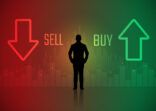How important are environmental, social and governance issues in how Hermes approaches its positioning in the investment management space?
It’s very important. It is a big part of our heritage and a big part of our DNA. We are very ESG aware, in terms of those externalities that can create risks in our mainstream investment portfolios. It is not the single factor that drives our investment decisions but it is carefully considered, both from a risk and an opportunity perspective.
We tend to be long-term investors, with low portfolio turnover, and the longer-term investor you are the more important these factors become.
If you are worried about the practices of someone in the extractives industry, take BP as an example, the tail risk on those kinds of events is extreme in terms of the impact on the value of your underlying shareholding.
We take that engagement with these companies very seriously. It’s not combative, it’s not activism, it’s constructive engagement, but we do capture that information.
We aggregate all the publicly available data on ESG risk factors and we have a very structured risk dashboard approach that all our portfolio managers are able to use.
If you’ve got a company that is engaging constructively and is really making an effort to address those risks, that positive direction of travel is a big indicator of the future value of the company and how it might perform versus its peers. By definition, we’ve got lower friction costs in our portfolios because we are not turning over stocks. However, we started with a blank sheet of paper post-RDR, so I feel grateful.
How are you positioning yourself on fees in relation to your peers?
We are positioning ourselves quite competitively because we do not have big legacy books of business to protect.
What differentiates us from our peers are our total expense ratios, which tend to be lower. We took the decision – with our responsible asset management hat on – that irrespective of whether we were offering fixed or variable costs, we were not in the business of making a margin on fund administration charges. We decided we were going to pass any charges on to our investors, directly and transparently.
With all the governance around, we have been very rigorous in terms of what we will and will not charge to the fund. We felt quite passionate that it was the right thing to do in this new world where we wanted to put our clients front and centre.
What progress is Hermes making in building a presence outside of Europe?
We are trying to be more incremental and thoughtful about it. We have made great headway in Australia and in the Asia-Pacific region. We have a number of Australian institutional clients and we are starting to win clients within the rest of Asia as well.
We are engaged with some of the big institutions in jurisdictions such as Japan, Korea and China. We have now got distribution in places like Hong Kong and Singapore, which are Ucits-driven markets. We employed a specific resource to do that, in the form of the private bank platforms where we are starting to win mandates.
We are beginning to see revenues come in from Asia. If I had to bet money on it, I’d say in three to five years Asia could potentially represent a good 25% of our revenues. It is a nascent effort but we’ve got a decent footprint of institutional clients already, particularly in Australia, and that will grow.
What plans do you have for the year ahead in terms of markets, product launches, marketing initiatives and business deals?
We basically de-risked this business, posting our first positive statutory set of results just recently. Now we’ve done that, we are looking forward to the next phase of our growth, and I think strategy will come front and centre again.
“We will be exploring different ways to grow, including non-organically. Whether or not we find anything we want to do there, I don’t know just yet.
















